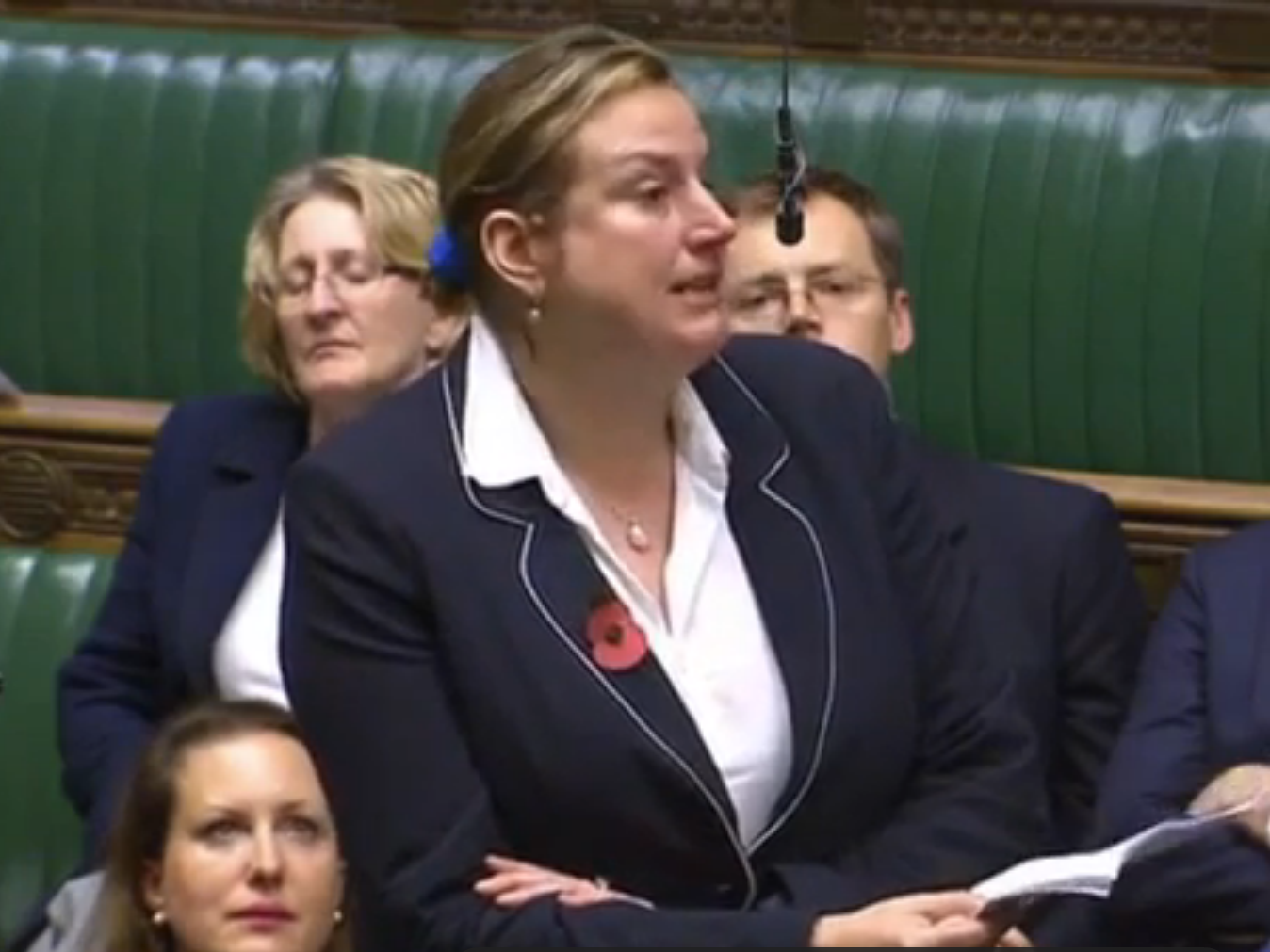Andy McSmith's Diary: When is the right time to interrupt an MP grieving for her baby boy?
Antoinette Sandbach's emotional address to the House of Commons prompted a timely intervention from a fellow MP

Your support helps us to tell the story
From reproductive rights to climate change to Big Tech, The Independent is on the ground when the story is developing. Whether it's investigating the financials of Elon Musk's pro-Trump PAC or producing our latest documentary, 'The A Word', which shines a light on the American women fighting for reproductive rights, we know how important it is to parse out the facts from the messaging.
At such a critical moment in US history, we need reporters on the ground. Your donation allows us to keep sending journalists to speak to both sides of the story.
The Independent is trusted by Americans across the entire political spectrum. And unlike many other quality news outlets, we choose not to lock Americans out of our reporting and analysis with paywalls. We believe quality journalism should be available to everyone, paid for by those who can afford it.
Your support makes all the difference.When an MP has the House of Commons in thrall, speaking vividly from personal experience on a painfully emotive subject, other MPs usually do well to sit and listen rather than interrupt with some anodyne remark in praise of the Government. There was a curious exception to that rule, though, when MPs discussed how to help parents of babies who are stillborn or die after a few days cope with their loss.
Antoinette Sandbach, Tory MP for Eddisbury, described the night that her baby died. Hospital staff warned her that the police would have to investigate and at that moment, “in a plain room” she realised she had left her phone behind and could not remember any numbers. Her six-year-old did not yet know that the baby boy was dead.
She had been struggling not to cry for several seconds and, having reached this point in her narrative, she was clearly too overcome to continue. A fellow MP, Mark Menzies, broke what might have been a long and difficult silence by jumping to his feet to ask whether Sandbach agreed that the Government was “making great strides” in helping bereaved parents. It was banal, but it gave her time to recover. “I certainly do agree, and I am very grateful to him for his intervention,” she said, and carried on.
Ukip dumps a dumper
Ukip is a duller party for the loss of Winston McKenzie, who was their candidate in a by-election in Croydon North in 2012.
When Nigel Farage failed to put in an appearance at a carnival McKenzie had organised – which was wise of Ukip’s leader, given the reaction of passers-by – McKenzie tactfully absolved him from blame by telling journalists that Croydon was “unsafe” and a “dump”. Croydon’s electorate unaccountably did not turn out in droves to vote for him.
More recently, McKenzie hoped to be Ukip’s candidate for London mayor, but was not chosen. Now he has resigned. He told ITV: “I’ve been completely ignored, racially discriminated against by people in the higher echelons of the party.”
Knives are out for Danczuk
The former MP Chris Mullin has mellowed since the early 1980s, when he was a mover and shaker in the Bennite insurgency, the nearest equivalent in living memory to the current Jeremy Corbyn phenomenon.
Mullin wrote the 1981 pamphlet How to Select or Reselect Your MP, which was seen as a handbook for Bennite conspirators who were out to purge right-wing Labour MPs.
These days, Mullin believes Labour should appeal to the middle ground, and does not think the Corbynites can or should set about removing right-wing MPs. But he makes an exception of Simon Danczuk, the Rochdale MP, outspoken critic of Jeremy Corbyn, and occasional contributor to The Sun. “Collaborating with the nastier elements of the Murdoch press to do down the party is quite a high crime in my book,” Mullin told the New Statesman. “If I was in Simon Danczuk’s constituency party, I would certainly be sharpening my sword. He might well go away to Ukip or somewhere in the end, but good riddance to him, I say.”
Carry on Carrington
“What has happened to Lord Carrington, who was hanging quite happily outside the Bishop’s Bar but has now disappeared?” Baroness Trumpington asked her fellow peers, according to the Hansard record. What an alarming image. Peter Carington has been a member of the House of Lords since Britain was standing alone against the Nazis, before Pearl Harbour, before the German invasion of the USSR. How could he, at the grand age of 96, hang happily outside anyone’s bar?
Rereading the Baroness’s remarks in context, it is clear that she was referring not to the venerable peer, but to his portrait, which is not on its hook. Phew!
Join our commenting forum
Join thought-provoking conversations, follow other Independent readers and see their replies
Comments